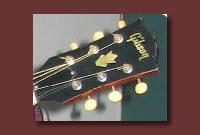 Yesterday the House voted for adoption of an amendment to the Constitution that would outlaw flag desecration, “flag burning†being the words that are customarily used by the proponents of the amendment to fire up emotions and garner support. Previous attempts to amend the Constitution have failed in the Senate, and, in my view, that’s a good thing.
Yesterday the House voted for adoption of an amendment to the Constitution that would outlaw flag desecration, “flag burning†being the words that are customarily used by the proponents of the amendment to fire up emotions and garner support. Previous attempts to amend the Constitution have failed in the Senate, and, in my view, that’s a good thing.
I have never supported such an amendment, because I believe, as the Supreme Court noted in its opinion in Texas v. Johnson, that flag burning (as despicable as I find the act) is a form of speech, which is and must remain protected by the First Amendment.
“But, wait!†the amendment’s supporters urge, “There is no First Amendment issue, because flag burning isn’t speech! It’s conduct, and that’s what we want to ban.â€
I disagree. The act of flag burning (the kind that makes everyone angry, as opposed to, say, the ceremonial retirement, by burning, of worn flags conducted by veterans’ and fraternal organizations) is obviously conduct, but there can be no doubt that it is conduct intended to communicate a message. Supporters of the Amendment would be hard pressed to suggest otherwise, given that the it is the very message intended to be conveyed by flag burning that has the supporters of the amendment riled up.
In the communicative sense, flag burning is only different in degree from the display of the middle finger in anger or defiance. Flipping someone the bird is, after all, “conduct,†but its communicative message is crystal clear, which is to say, it constitutes “speech.â€
The American Legion, an organization of which I am a proud member, has collected a small fortune from its members in support of its campaign to have the amendment adopted. It has also engaged in massive lobbying efforts to seek support for the amendment, which efforts, in my view, could have been better directed toward the advocacy of issues that could actually help veterans.
As part of its relentless campaign, the Legion offers up poll results that show that more than eighty percent of the people in the country support the amendment. Of the poll, the American Legion National Commander has said:
“When asked a straight forward question, most Americans will give you a straight answer – Protect Old Glory.â€
Here are the “straightforward†questions he referred to:
1. “How important do you think it is to make desecrating the U.S. Flag Against the Law? Extremely important, very important, somewhat important, or not important at all?â€
2. “Do you favor or oppose the passage of a Constitutional amendment that would allow Congress to enact laws to protect the U.S. flag?†The possible responses were: “strongly favor, somewhat favor, somewhat oppose, strongly oppose, and “don’t know.â€
3. “Would you likely vote for someone who is opposed to protecting the U.S. Flag?†The possible responses were, “yes, no, and don’t know.â€
I think it is more accurate to say that the best way to get the answers you want on a survey is to ask emotionally loaded questions that relate to a complex issue and only permit “simple†answers.
I believe that even a good number of long-time American Legion members would not be so quick to support the amendment, if they were to take the time to consider what potentially can happen if such an amendment is passed.
For example, over the past few years, I have had something resembling the following exchange with many Legionnaires:
Me: “How would you feel if some day Congress passed a law making it a crime to wear a Legion Cap?â€
Him: “Don’t be silly. Congress couldn’t do that. That would violate our constitutional rights.â€
Me: “Are you talking about your First Amendment rights?â€
Him: “Absolutely.â€
Me: “Wait a minute. Wearing a cap isn’t speech: It’s conduct, no?â€
Him: “Huh?â€
Me: “You said that congress could outlaw flag burning because flag burning isn’t speech, but rather it’s conduct. And I’m asking how is flag burning different from wearing a Legion Cap?â€
Him: “You’re being ridiculous. You can’t equate burning Old Glory with wearing a Legion Cap. It’s different.â€
Me: “Well, let me ask you this. When you wear your Legion Cap, do you wear it to keep your head warm?â€
Him: “No. They’re not even good for keeping your head warm.â€
Me: “Isn’t it more accurate to say that when you wear your Legion Cap, you are saying something? By wearing the cap, aren’t you letting the world know that you are a veteran who served in time of conflict, that you’re proud of your service and the service of others, and that you support causes that improve the lives of veteran’s in general?”
Him: “I suppose so.”
Me: “So, both you and the flag burner are each ‘saying something,’ he by burning a flag and you by wearing a Legion Cap. So, again I ask you, how you would feel if Congress passed a law prohibiting you from wearing your Legion Cap?â€
I wish I could report that at the end of these dialogs, the “Him†always said, “You’re right. I hadn’t looked at it that way before.†The good news is that more than a few do say something just like that. Unfortunately, many simply say, “I don’t give a damn what you say. I want Old Glory protected.â€
I believe that the American Legion should rethink this issue, but given the amount of monetary and political capital that the organization has invested in getting the amendment passed, I doubt that it will happen.

 Ever notice that umbrellas always seem to be at home or in the car whenever you are neither at home nor in the car and the farookin’ skies open?
Ever notice that umbrellas always seem to be at home or in the car whenever you are neither at home nor in the car and the farookin’ skies open?
 Yesterday the House voted for
Yesterday the House voted for  I’m sure you all know Ziggy, the cartoon character who seems to have a perpetual black cloud over his head. You may call me Techno Ziggy.
I’m sure you all know Ziggy, the cartoon character who seems to have a perpetual black cloud over his head. You may call me Techno Ziggy.


